May 12, 2025 | 08:54 GMT +7
May 12, 2025 | 08:54 GMT +7
Hotline: 0913.378.918
May 12, 2025 | 08:54 GMT +7
Hotline: 0913.378.918
Speaking at Thematic Session 2 on livestock and veterinary affairs, fisheries, and fisheries inspection - a part of the Conference on Implementing the Action Plan for Resolution No. 57-NQ/TW issued by the Politburo on the development of science, technology, innovation, and national digital transformation, along with related documents in the agriculture and environment sectors held on May 10 in Bac Ninh, Mr. Tran Dinh Luan, Director General of the Directorate of Fisheries and Fisheries Surveillance (Ministry of Agriculture and Environment), emphasized that Vietnam is one of the top three seafood-exporting countries in the world, playing a key role in supplying seafood products globally. This achievement owes significantly to contributions from science and technology.
Shrimp and tra fish are two vital products that contribute greatly to Vietnam’s seafood export turnover. Several enterprises have achieved export values exceeding USD 100 million in marine aquaculture, and tilapia exports alone reached USD 41 million in 2024. These figures illustrate that the fisheries sector still holds many advantages and room for further development.
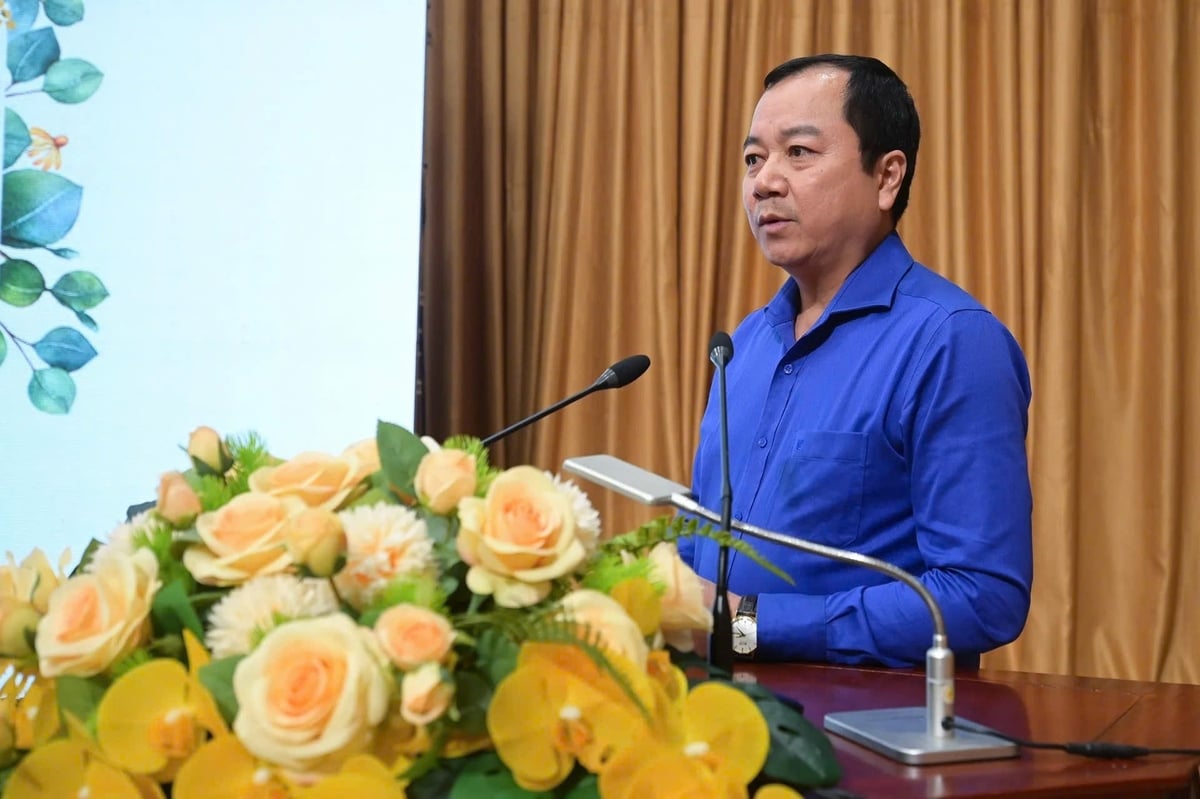
General Director of the Fisheries and Fisheries Resources Surveillance Department, Tran Dinh Luan, stated that Vietnam is one of the three largest seafood-exporting countries in the world. Photo: Tung Dinh.
General Director of the Fisheries and Fisheries Resources Surveillance Department, Tan Dinh Luan, stated: “In recent years, science and technology in the fisheries sector have shown positive progress, attracting both domestic and international resources, with breakthroughs in selective breeding, improvements in farming procedures, and the development of aquafeed - particularly focused on key farmed species such as shrimp, tra catfish, and tilapia.”
The leadership of the Directorate of Fisheries and Fisheries Surveillance highlighted the notable achievements of science and technology in the fisheries sector in recent years. These include the successful selective breeding of 35 aquatic species and the development of feed formulas for several key farmed species, such as tra catfish, lobsters, Babylonia snails, and marine fish.
Various models have been developed to implement circular economy and green economy principles in aquaculture. Technology has also been applied in traceability systems to verify the origin of seafood products.
Research and improvements have been carried out on fishing gear, equipment, and technical procedures for harvesting and post-harvest preservation. Selective fishing gear has contributed significantly to the protection and sustainable development of aquatic resources.
Technology has also been applied to process value-added products, deep-processed goods, ready-to-eat meals, surimi, and more, ensuring product quality and food safety.
However, according to Mr. Tran Dinh Luan, science and technology activities are still not commensurate with their potential and have yet to become a true driving force for the fisheries sector. Pioneering research that could lay the foundation for developing new product areas, such as industrial-scale marine aquaculture, seaweed farming, ornamental fish, and the processing of medicinal and cosmetic products, remains limited.
Seed production remains low and is heavily reliant on imports. The survival rate of tra catfish during the nursery stage is still low. Marine fish fry are insufficient in quantity and poor in quality. Lobster and mollusk seed production largely depends on natural capture, which poses risks in disease outbreaks and environmental pollution.
In seafood processing, while enterprises such as Minh Phu (shrimp) and Vinh Hoan (catfish) have achieved large-scale production and exports on the global market, the overall rate of deep-processed products remains low. Non-food products derived from by-products and aquatic organisms have not yet been strongly developed.
Regarding harvesting technology and on-board preservation, there is still a lack of thorough understanding of the growth patterns and distribution of key species such as tuna, squid, and deep-sea fish. Post-harvest losses remain higher than the global average.
Market research, value chain management, and studies to support policy development are still limited in number, often impractical, and fail to reflect consumers' behavior and the evolving segmentation of domestic and international markets.
Current science and technology research tasks are still fragmented and poorly integrated. The number of businesses participating in the application and development of science and technology remains limited.
Mr. Luan stated that the Politburo's orientation for developing science, technology, and innovation in the fisheries sector in the coming period will be closely aligned with the spirit of Resolution No. 57-NQ/TW, dated December 22, 2024. This orientation emphasizes that completing institutional frameworks, building human resources, developing infrastructure, managing data systems, and investing in strategic technologies are the foundational pillars.
The overarching goal is to achieve rapid and sustainable development while gradually moving toward technological self-reliance, especially in strategic technologies.
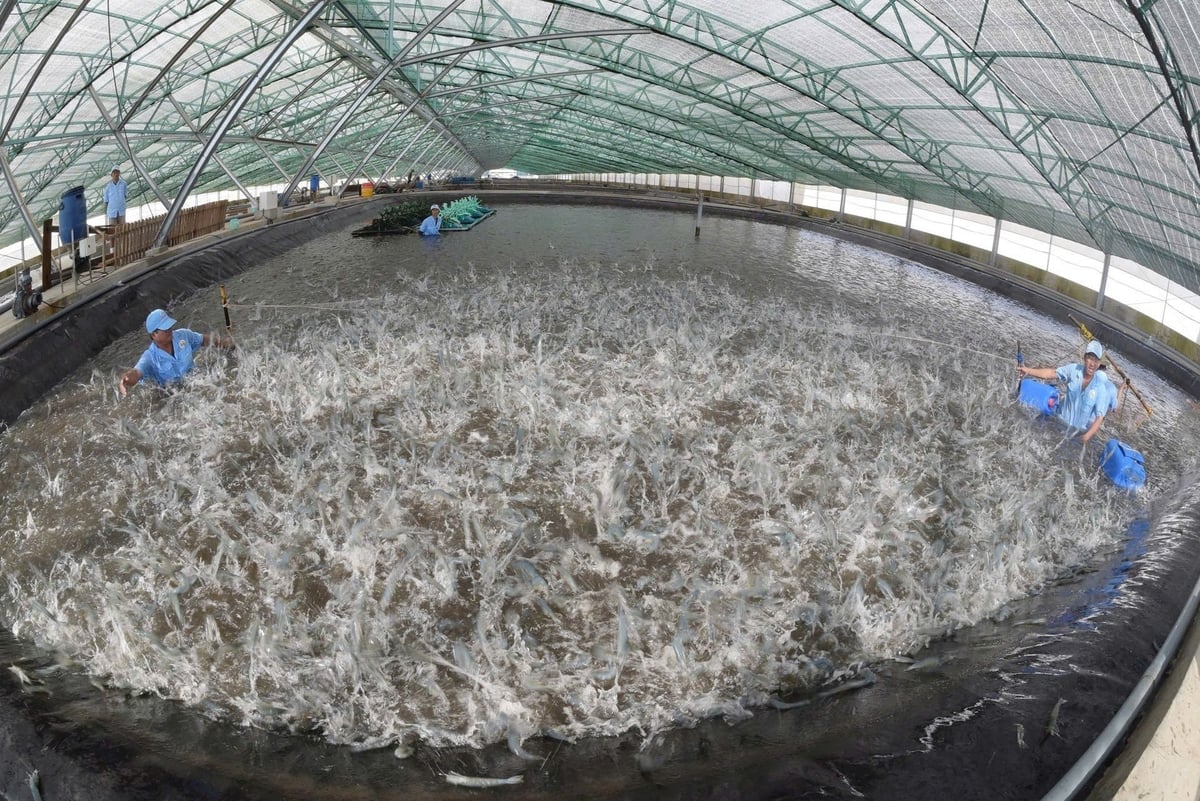
Specifically, aquaculture will continue to develop long-term science and technology programs and projects focused on the selective breeding of aquatic species that grow quickly, resist disease, and adapt well to climate change.
It will also focus on building research programs and developing technologies for large-scale industrial aquaculture, including marine fish farming, farming in large surface water bodies (such as rivers and reservoirs), and cultivating and processing seaweed.
The orientation of scientific and technological development and innovation in the fisheries sector will closely follow the spirit of the Politburo’s Resolution, issued on December 22, 2024.
Epidemiology research related to diseases affecting key aquaculture species with high economic value will be prioritized. The implementation of the National Product Program for brackish water shrimp and tra catfish and proposals for expanding marine aquaculture will continue.
Focused research will be conducted on technology development, mechanization, and modernization of fishing fleets regarding the management and conservation of aquatic resources and seafood processing.
Emphasis will be placed on developing advanced technologies for value-added processing, deep processing, ready-to-eat products, functional foods, and cosmetic ingredients, aiming to diversify products for domestic consumption and exports.
Additionally, the fisheries sector will integrate digital technologies into farming, harvesting, resource protection, and processing activities.
Priority will be given to researching and applying circular economy and green economy principles, environmental protection, disease prevention, and adaptation to climate change in aquaculture, harvesting, resource protection, and processing operations.
Digital technology applications will extend to the management and operation of the national fisheries and fisheries information system (fisheries sector information system, fishing vessel monitoring system, fisheries command and control information system, specialized databases). Furthermore, efforts will be made to enhance international cooperation, mobilize funding for strategic technology research, and transfer it to fisheries.
Translated by Kieu Chi
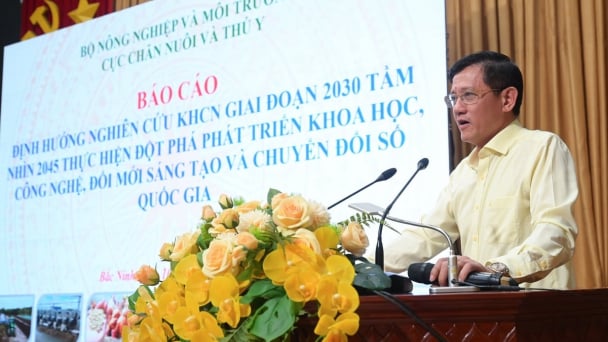
(VAN) Director General of the Department of Livestock Production and Animal Health, Duong Tat Thang, outlined solutions to drive scientific and technological breakthroughs in the livestock and veterinary sectors in the near future.
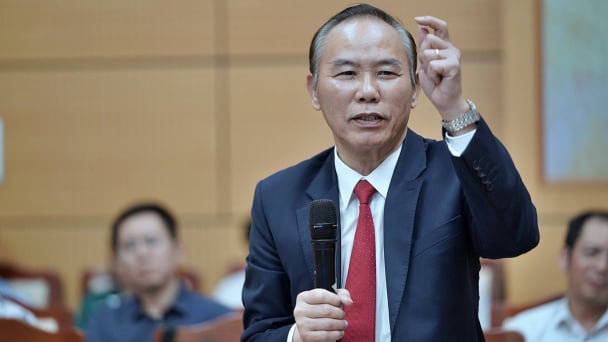
(VAN) Digital transformation, advanced forecasting and cross-sectoral data integration will form the cornerstone of modernising irrigation, disaster prevention and meteorological services in the years ahead.
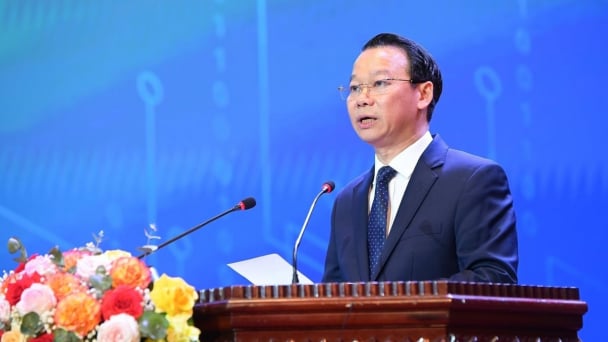
(VAN) Minister Do Duc Duy affirmed that science, technology, and digital transformation are the foundations for agricultural and environmental breakthroughs in the new era.
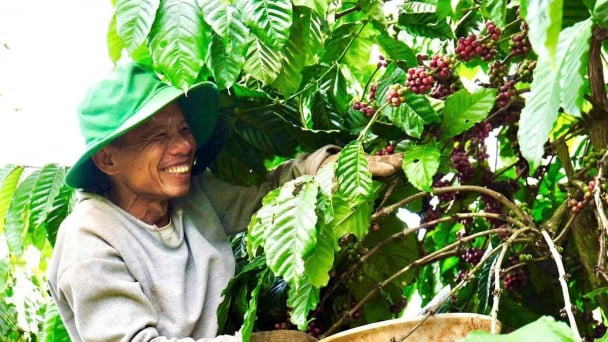
(VAN) Coffee is a key crop in Ea H’leo district, and given market and weather challenges, sustainable development has become a mandatory requirement.
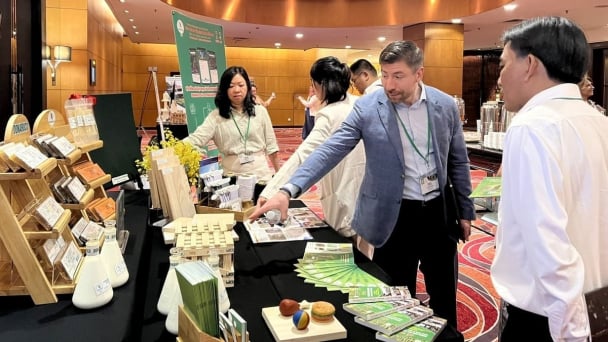
(VAN) By promoting sustainable forest management in accordance with PEFC standards, many businesses and sectors are now confident in their ability to comply with the EUDR.
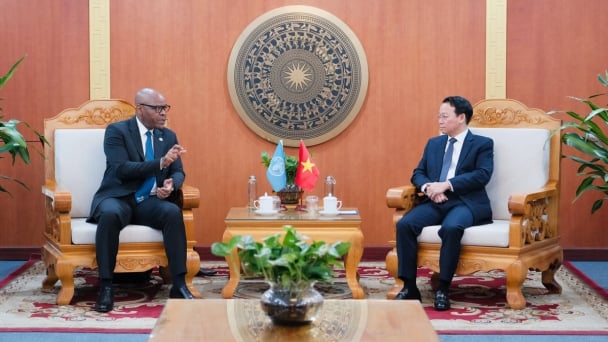
(VAN) That was the message from Dr. Rémi Nono Womdim, FAO Representative to Viet Nam, at the meeting marking the end of his five-year cooperation term with the Ministry of Agriculture and Environment (MAE).